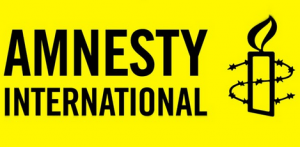Amnesty International asked to ‘name and shame’ in their reports
 Mr. Ibrahim Oppong Kwarteng, the Executive Director of Crime Check Foundation (CCF), is requesting Amnesty International to add naming and shaming components to its reports on prison conditions.
Mr. Ibrahim Oppong Kwarteng, the Executive Director of Crime Check Foundation (CCF), is requesting Amnesty International to add naming and shaming components to its reports on prison conditions.
He said this would awaken agencies and individuals that have shirked their responsibilities of ensuring improved prison conditions.
Mr. Kwarteng was speaking at the Annual General Assembly Meeting of Amnesty International Ghana on the theme: “Improving Prison Conditions in Ghana – a necessary step towards the protection of the rights of the prison inmates.”
He said the laxity of successive governments over the years in retooling the prison service has equally prevented the service from adequately meeting the international standards, like that of the UN and other international laws in the handling prisoners.
He said it was not surprising, therefore that out of the 44 prisons in the country, 39 were still relics of the pre-independence era, some of which served as warehouses used by colonialists and merchants.
“Prisons such as Yendi, Gambaga and others are apologies of institutions which by current principles of penal administration should serve as Correctional Centres,” he said.
Mr. Kwarteng, who is also has become an ambassador of prison conditions in Ghana, said 62 years after independence, the country still warehoused large numbers of human beings in very deplorable conditions.
He said eventually, most prisoners in Ghana continue to queue in large numbers to visit the toilet, the bathrooms, and sometimes defecate in containers in full glare of their fellow inmates in congested spaces at night, because they did not have access to toilets, in the main prison yards.
He said the design of Ghana’s colonial prison cells, poor lighting and ventilation have led to persistent outbreak of communicable diseases in most of the prisons, sometimes leading to the death of some inmates.
He said to ensure an improvement in prison conditions, government needed to strengthen prison oversight, by following the UK model, where the oversight functions were performed by statutory institutions that have exclusive legal authority to report on conditions, in public and private prisons and other detention facilities.
He also urged government to appoint a Chief Inspector of Prisons like in other jurisdictions, so that the treatment of prisoners would have positive outcomes.
“In the UK for instance, you usually see the Justice Minister in some discomfort when the Chief Inspector of Prisons is about to present his quarterly report on the Prisons.”
He also called on government to privatise some of the prisons, to ensure its effective operations and to reduce the huge costs associated with the running of the country’s 44 public prisons.
He implored Parliament to hasten the passage of the Non-Custodial Sentencing bill into law, which allows community service for petty offenders. This he added, would allow such persons contribute to society, by taking up work like desilting choked gutters, cleaning the streets, and planting for food and jobs among others.
“I appeal to the President to grant amnesty to prisoners to reduce the massive congestion in the country’s prisons,” he added.
He appealed to the police administration to put in place an audio-visual recording system that would enable unlettered accused persons record their statements instead of leaving them in the hands of corrupt police men to distort the facts.
The Executive Director of CCF, attributed the problem of congestion to the absence of alternative punishments by courts for first time offenders, high prison sentences for first-time offenders because of the absence of non-custodial options such as community service and lengthy trial processes resulting in long stay on remand.
According to him, the ‘unnecessary’ jailing of addicted cannabis inmates, instead of making into law, the Narcotics Control Commission bill to decriminalize cannabis use, continuous imprisonment of pregnant women instead of giving them suspended sentences as required by law and the inflation of ages of juveniles by corrupt police officers, to have them convicted in walled prisons, added to the congestion problem.
Mr. George Aggrey, the Board Chairman, Amnesty International Ghana, said the yearly event was to share ideas and deliberate on specific issues the organisation would focus on in the coming year, all aimed at promoting human rights in Ghana.
“This year’s theme is birth out of our focus on advancing the welfare and human rights of persons in our prisons, which is part of our ideas or areas of work,” he said.
He also said prison conditions in Ghana fell below international standards.
He said the conditions were inhumane and undermined the dignity of those people in the prisons.
“we believe that all persons no matter, who they are or where they must be, are able to access basic amenities that promotes their wellbeing,” he added.
Source: GNA
